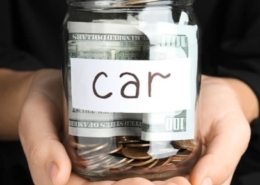10 Ways Your Car Is Secretly Judging You
Surprising ways your car is silently judging your driving habits and choices, revealing more about you than you might expect.
Is Your Car Judging You?
From the sleek lines of its exterior to the intricate circuitry behind its dashboard, your car possesses a level of perceptiveness that might surpass your initial expectations. This mechanical companion does more than merely facilitate your commute; it continuously assesses and reacts to your interactions.
Whether observing the gradual erosion of its tires or noting how you adjust the climate settings, your vehicle quietly compiles data on your driving style and preferences.
In this guide, we’ll explore ten insightful ways your car could be quietly critiquing everything from your maintenance punctuality to the decisiveness of your navigation choices, shedding light on how these mechanical judgments could be shaping your automotive relationship.
Table of Contents
The Top 10 Ways Your Vehicle May Be Judging You
Here are the top 10 ways your vehicle may silently judge your driving habits and care practices.
1. Your Driving Style: Is it Smooth or Erratic?
Cars are built to assess their health, and your driving style significantly determines their well-being. Vehicles with onboard diagnostics monitor everything from acceleration patterns to braking intensity.
Drive aggressively, and your car interprets this as a lifespan-shortening habit—think of it as your car wincing every time you stomp on the brakes or gun the engine at a green light.
2. Climate Control Settings: Too Hot, Cold, or Indifferent?
The settings you prefer for your car’s climate control can speak volumes about your attention to energy efficiency—or lack thereof. Excessively high heating or overzealous air conditioning impacts fuel efficiency and could be seen as neglectful energy management by your car.
Your car’s response? A subtle adjustment in fuel consumption rates or a quicker wear on the HVAC system.
3. Music Volume: Party in the Front, Silent Judgment in the Back
High volume levels might pump up the energy in your cabin, but they also stress your car’s speaker system.
Regularly cranking up the tunes to maximum could lead your car to judge your consideration for its audio capabilities and longevity.
4. Interior Cleanliness: A Cluttered Car Equals a Cluttered Mind
Just like a tidy home can reflect a meticulous mind, the state of your car’s interior might imply a lot about your habits.
Trash buildup and spills that aren’t cleaned up promptly can attract pests or cause unpleasant odors and stains—issues your car considers when ‘judging’ the respect and care it receives.
5. Maintenance Schedule: Procrastinator or Preventive Caretaker?
Adhering to your car’s recommended maintenance schedule is akin to regular check-ups at the doctor.
Skipping oil changes, tire rotations, and other routine maintenance can cause your car to suffer—and silently judge you for your procrastination.
This neglect can lead to more significant mechanical issues, which your vehicle sees as preventable maladies.
6. Fuel Type and Quality: Premium vs. Regular Debate
Using the correct fuel grade is not just a suggestion; it’s a requirement for many vehicles, especially those with high-performance engines.
Opting for lower octane than recommended can cause knocking and long-term damage, which your car takes personally.
7. The Wear on Your Tires: An Uneven Story
Tire maintenance is another area where your car influences your judgment. Driving on improperly inflated or worn-out tires compromises your safety and your vehicle’s efficiency and comfort.
Your car notices the uneven wear and tear and may interpret it as a lack of care.
8. The Use of Seat Belts: Safety First or Freedom First?
Your car is designed to keep you safe; seat belt use is a primary safety measure.
Ignoring this critical feature can trigger your car’s warning systems (and possibly its silent disapproval).
Your vehicle might perceive this oversight as disregarding safety protocols, impacting its system checks and balances.
9. Driving Alone vs. Carpooling: The Solitude Versus Social Debate
Choosing between driving alone or carpooling can also influence how your car ‘feels’ about your environmental conscientiousness.
Regular solo trips, especially in a gas-guzzler, might tag you as an eco-indifferent individual in the sensors and systems of your car.
FAQs About How Vehicle’s May Be Judging You
What does it mean when you say my car is "judging" me?
This refers to how your car’s systems monitor and respond to your driving habits and maintenance practices, affecting its performance and longevity.
How can my car tell if I’m driving erratically?
Modern vehicles have sensors that track acceleration, braking patterns, and overall driving style, providing data that might suggest aggressive or unsafe driving.
Does playing loud music affect my car?
High volumes can strain your car’s audio system, potentially leading to speaker wear and tear over time.
What impact does not cleaning the interior of my car have?
A dirty car interior can lead to mold, stains, and unpleasant odors, which might affect the car’s resale value and your enjoyment of the vehicle.
Why is following the maintenance schedule important?
Regular maintenance ensures your car operates efficiently and safely, preventing minor issues from becoming major problems that could be costly.
How does not wearing a seatbelt affect my car’s judgment?
Not using a seatbelt can trigger your car’s safety alerts and may be logged as risky behavior, affecting how safety features calibrate and respond in certain situations.
Conclusion: Enhancing Vehicle Longevity Through Attentive Care
While the idea of our cars passing judgment may be taken with a pinch of humor, the underlying truth is that our habits in maintaining and operating our vehicles genuinely influence their performance and lifespan.
We can promote a smoother ride and a more harmonious relationship with our automotive companions by tuning into the “feedback” our cars provide—whether through warning lights, maintenance reminders, or even fuel efficiency readings. Understanding and responding to this feedback can help us make more informed decisions that extend the health and functionality of our vehicles, ensuring that they serve us well for the long haul.
This proactive approach maximizes the value we get from our cars and contributes to safer, more efficient driving practices that benefit everyone on the road.














